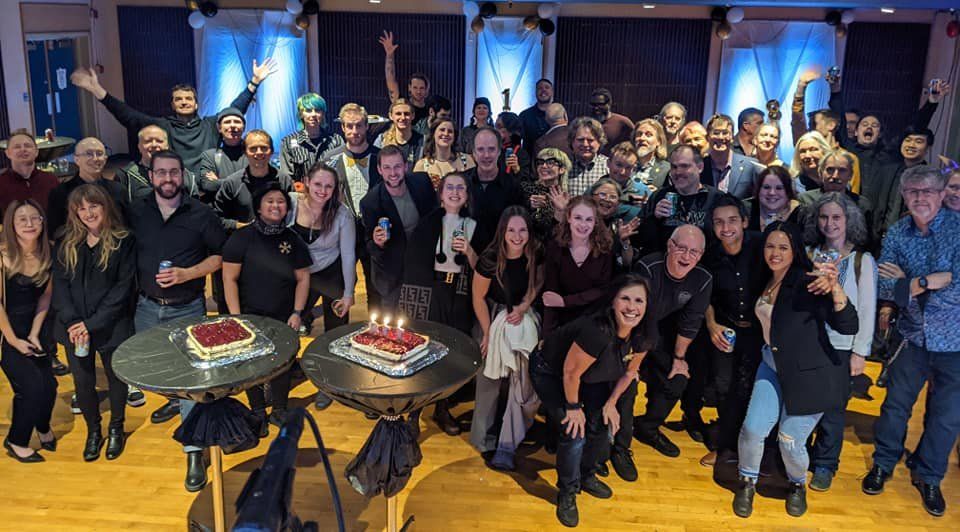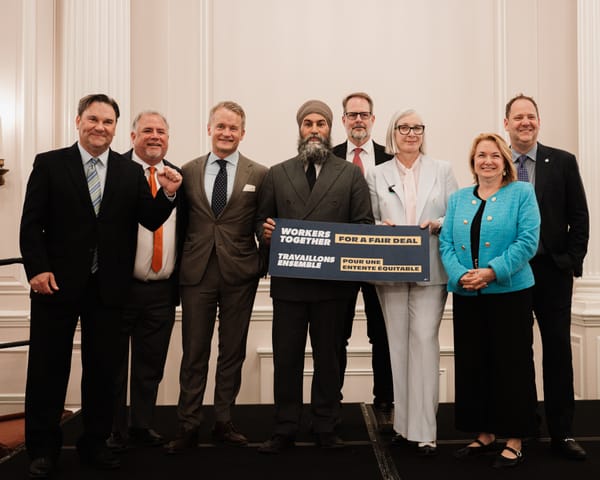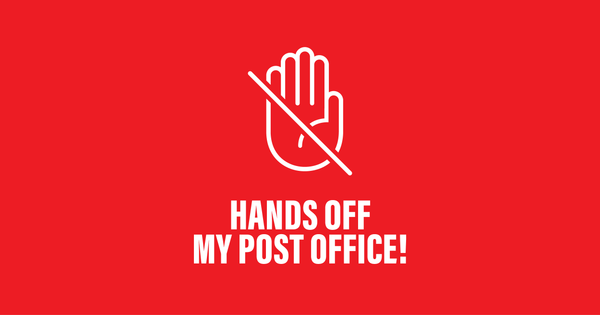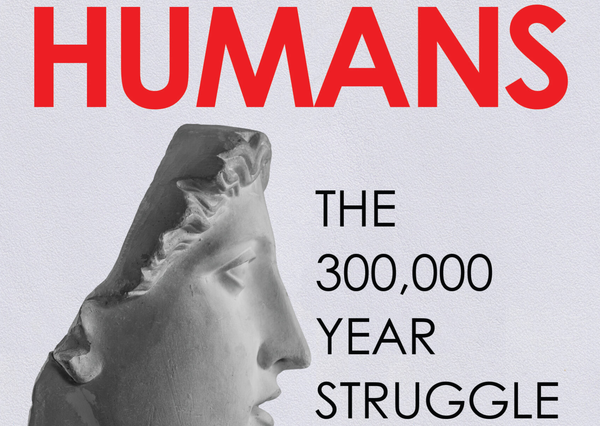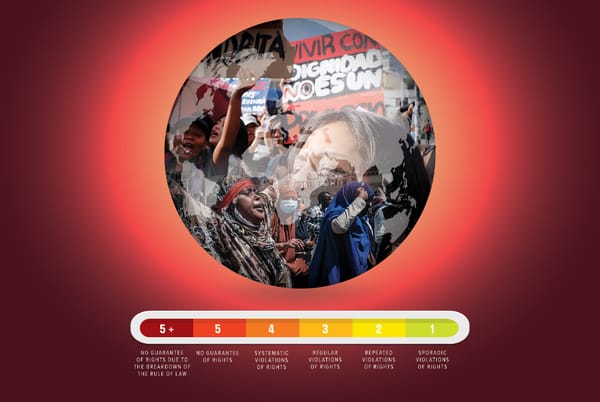Union members with the International Alliance of Theatrical Stage Employees (IATSE) are currently in a contract fight with the Vancouver Symphony Orchestra (VSO). This week I sat down with vice president of IATSE 118 Diana Bartosh to talk about what’s at stake for the union in this round of bargaining with the VSO as well as Local 118’s recent strike vote.
Diana has been a member of IATSE 118 since 2018, VP of the local since January and a theatre worker for over a decade.
Readers can keep up with the negotiations at the union’s “strike website” and follow the local on Instagram and Facebook.
Adam King: Can you tell us about IATSE 118 and how the union’s “hiring hall” model works in the theatre industry?
Diana Bartosh: IATSE 118 represents about 420 stagehands and others who do technical stage work across Vancouver, in addition to roughly 250 “permittees,” those working on temporary permits who are in the process of becoming full members.
In theatre, it’s difficult to get full-time work with one employer. We have a few positions where that’s the case, but it’s rare. For the most part, workers take calls from many different venues or employers and move around from week to week — from the VSO, to the Queen Elizabeth Theatre, and so on.
This model shifts how we build relationships with our members and what our priorities are as a union, in some senses. The industry can be deeply insecure. It can be tough to get reliable and consistent work and wages, which is sometimes difficult to translate for people outside of the industry.
But this also means that our bargaining units look different than many other unions. The bargaining unit for the VSO is about 130 people, which is over a third of our membership. That’s not typical. The VSO isn’t necessarily a massive source of work for our members, but over the four years of the last collective agreement, that’s how many of us have worked there.
AK: And can you tell readers about the VSO? It seems to be a well-funded organization with a sizable endowment, but I’m sure like most employers it says it can’t afford the union’s proposals.
DB: The VSO is one of the biggest arts organizations in Western Canada. They’re a non-profit and all of their annual reports are public, so it’s easy to review what their funding and financials look like.
They receive a lot of federal government funding, especially since the pandemic. Even when they were putting on fewer shows and had fewer expenses, there was a lot of funding coming in. We work for many small arts organizations with little money, but the VSO is not one of them.
They also have a foundation where they put money left over at the end of the year. So effectively, they’re able to squirrel away any “profit” they do have at the end of the year, which makes it look like they’re in a more precarious position than they actually are.
Importantly, IATSE 118’s payroll from the VSO is roughly $400,000 a year, whereas their payroll for the musicians is around $5 million per year. In other words, our members represent a small portion of the VSO’s overall expenses. They’ve already offered higher wage increases to other groups of workers who make up a much larger slice of their payroll.
I think the VSO has a hard time seeing our people as their employees and that they have an obligation to these workers. They’re used to working with the musicians full-time; they’re used to having them be the stars of the shows. But they’ve forgotten the importance of IATSE members and the value of what our members do. Yes, the musicians are the stars, but without the lights, there’s no show.
AK: IASTE 118 has been without a contract since June of last year. What is the union seeking at the bargaining table, and what are the primary disagreements with the employer?
DB: We haven’t historically made huge demands at any of our bargaining tables. In this case, we’re not asking for massive wage increases or major changes in any other parts of our contract.
Here, what we’re really asking for is wages that keep up with inflation and protect our members’ living standards. We have a COLA (cost of living adjustment) provision in our contract that we are trying to maintain. The VSO finds this to be too “complicated.” They think accounting for inflation is an unnecessary burden on them.
They don’t want to give us wage increases at all, but what they’re most concerned with is getting rid of this COLA provision that provides wage adjustments when inflation is high, like it is right now. But again, our wages are such a small part of their expenses. It feels like we’re fighting tooth and nail over something that, for them, is minor.
AK: The employer is seeking a pretty significant concession: the removal of COLA from the union’s contract. With inflation running high for over a year now, many unions are fighting to get COLA clauses back into their collective agreements after so many were stripped out after the 1980s. IATSE 118 has had COLA since the 1970s. Why do you think the employer has decided now is the time to fight this battle?
DB: I think there are two reasons. First, I think they’ve been scared by the inflation of the past year. They’re looking at things and saying, “What if inflation is 7 per cent every year for the next four years?”
But second, pretty much everyone on their side of the bargaining table is brand new. Their CEO started during the last collective agreement and their lawyer is new to negotiating with us. I don’t think they have the context. They might not even know that COLA has been here for 50 years. And they don’t understand what our union has gone through over that time to make sure COLA stays in.
At one point, one of the people on their bargaining team actually said that all we do is “move chairs” and that’s why we don’t deserve wage increases in line with the musicians. That sort of set the tone. When you tell people that their labour isn’t valuable or skilled enough to merit the things they’re asking for — especially when we’ve had a bargaining relationship for over 50 years — you’re not setting the table for successful negotiations.
They pretty much came in on day one and said, “We don’t see a world where this COLA clause stays in the agreement.” But from our perspective, we’ve fought for this right and given up things in the past to make sure we retain it. For example, we’ve taken smaller rate increases in the past in order to keep COLA. It’s a security and an insurance policy that we’ve worked really hard to keep.
They’re prioritizing their security and the predictability of their finances. According to them, continuing COLA means that they won’t have that.
AK: They want “predictability,” but that means passing the economic uncertainty onto your members.
DB: Right. That’s exactly why we all fought for COLA in the first place when inflation was a persistent problem going back to the ’70s. It’s no surprise to me now when workers are getting hit hard that unions are fighting to win back some of what they’ve previously given up.
AK: Your union local has been around a long time — coming up on 119 years. But it’s also never gone on strike. Both of those details are pretty remarkable. On April 11, members voted 97.5 per cent in favour of strike action. How likely do you think a strike is at this point?
DB: We started our strike vote in February, so according to the law in British Columbia, we have another month before our strike mandate expires.
The biggest thing that the employer needs to understand is that the COLA isn’t going anywhere. They keep coming back to us with counter-proposals to cap the COLA or widdle it down. The principle for us is to ensure that at the end of the collective agreement and at the end of every year, we don’t have members’ wages falling below inflation. We haven’t allowed that in the last 50 years. Until they understand that, and the length we’re willing to go to protect our members, we’re not going to see a resolution to this.
Other pieces are negotiable for us — the length of the agreement, how rate increases are spread over the years, and so on. The piece that’s not negotiable is COLA.
AK: In some ways, a strike among workers in the arts and culture sector is unlike strikes in, say, manufacturing or even the public sector — places where the public is perhaps more accustomed to seeing picket lines. What could a strike by IATSE 118 members look like?
DB: There will be a couple of stages to it, starting with informational pickets, which could escalate to potentially delaying shows, and then, potentially, shutting down a full production.
We’ve been working hard to build support among our membership. But, quite honestly, our members are on board. Where we’ve had to really build support is among other workers at the venues. The venue we primarily work out of — the Orpheum Theatre in Vancouver — has a CUPE (Canadian Union of Public Employees) local representing staff in the venue, and then the musicians. We’ve needed to build support among these workers to make sure they stand with us and ultimately support us if it comes time to set up picket lines. We’ve shown up to other peoples’ picket lines, but this will be the first time that we set one up ourselves.
We care very deeply about the work that we do. No one wants to get to that point, if we don’t have to. There might be a perception out there that “greedy stagehands” want more than they deserve. Our members are sensitive to that perception. But they care really deeply about the arts and about their work. They want to see the shows happen. I think it’s notable that we’ve arrived at this stage where members are willing to shut down production. That’s never been on the table before.
AK: What can readers and other supporters do to help the union?
DB: The biggest thing is to let the VSO know that you support IATSE and will continue to support us if we have to strike, whether on social media or by sending emails or letters. Generally, I think that the VSO simply doesn’t understand the value that our members bring to their organization. Public support can help to change that.
We have a strike website and we’ll be putting our updates there. Getting that message out to as many people as possible is very helpful to us.
This contract fight is massive for us. We’re not a historically militant local. In theatre and live events, if workers don’t like how one employer is treating them, they tend to simply go somewhere else. People will choose different venues rather than stick around and fight. This is a really important moment for us as a union and for our relationship with arts organizations more broadly.
I hope this is a turning point for our union to start negotiating contracts with real improvements for our members.


